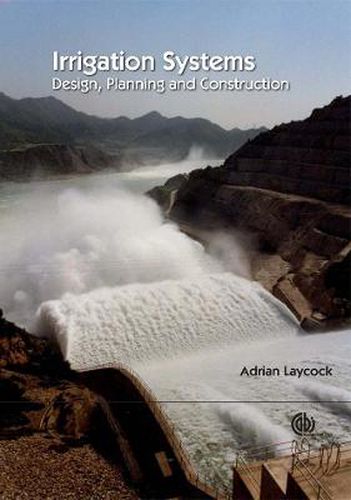Readings Newsletter
Become a Readings Member to make your shopping experience even easier.
Sign in or sign up for free!
You’re not far away from qualifying for FREE standard shipping within Australia
You’ve qualified for FREE standard shipping within Australia
The cart is loading…






Of all the confrontations man has engineered with nature, irrigation systems have had the most widespread and far-reaching impact on the natural environment. Over a quarter of a billion hectares of the planet are irrigated and entire countries depend on irrigation for their survival and existence. Considering the importance of irrigation schemes, it is unfortunate that until recently the technology and principles of design applied to their construction has hardly changed in 4,000 years. Modern thinking on irrigation engineering has benefited from a cross-fertilization of ideas from many other fields including social sciences, control theory, political economics and agriculture. However, these influences have been largely ignored by irrigation engineers. Drawing on almost 40 years of experience of irrigation in the developing world, Laycock introduces new ideas on the design of irrigation systems and combines important issues from the disciplines of social conflict, management, and political thinking.
$9.00 standard shipping within Australia
FREE standard shipping within Australia for orders over $100.00
Express & International shipping calculated at checkout
Of all the confrontations man has engineered with nature, irrigation systems have had the most widespread and far-reaching impact on the natural environment. Over a quarter of a billion hectares of the planet are irrigated and entire countries depend on irrigation for their survival and existence. Considering the importance of irrigation schemes, it is unfortunate that until recently the technology and principles of design applied to their construction has hardly changed in 4,000 years. Modern thinking on irrigation engineering has benefited from a cross-fertilization of ideas from many other fields including social sciences, control theory, political economics and agriculture. However, these influences have been largely ignored by irrigation engineers. Drawing on almost 40 years of experience of irrigation in the developing world, Laycock introduces new ideas on the design of irrigation systems and combines important issues from the disciplines of social conflict, management, and political thinking.